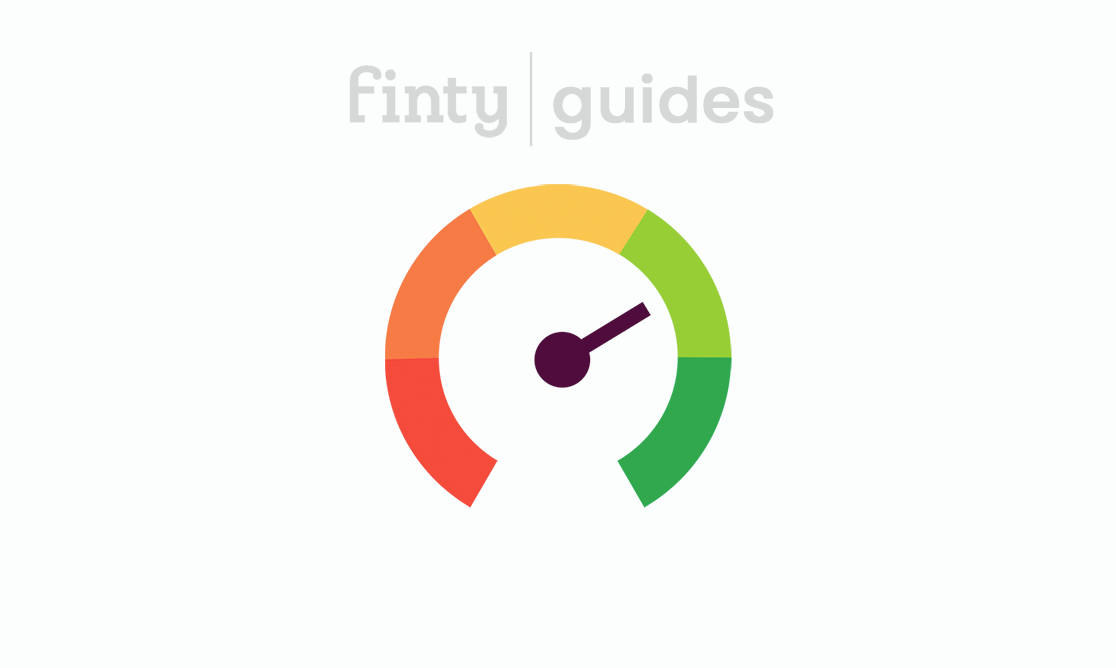- Closing a bank transaction or deposit account will not affect your credit score.
- Closing a bank overdraft is different, however, because it is a line of credit.
Sometimes relationships come to a natural end, and the same goes for your bank account. But are there any risks to your credit score when you close a bank account?
The answer is no, closing a bank transaction or deposit account does not have a direct impact on your credit score. However, if you were to close an overdraft account, that could be a different story.
Your credit score is calculated based on credit enquiries, for example, how much money you’ve borrowed, the number of credit applications you have made recently, and whether you pay bills and make loan repayments on time.
Concerned about your credit score? Monitor how it changes with Finty. Get started here.

In this guide
If you don’t have an overdraft
Closing a non-overdraft account is a fairly straightforward process, and you can do it by following the step-by-step guide below. There will be no impact on your credit score, as long as you remember to transfer all your direct debit bill payments to your new account. Once you’ve closed your account, any future direct debits will be rejected, and if you are unaware of this they could turn up in your credit history as late payments or defaults.
If you do have an overdraft
A personal overdraft is a line of credit in a way that is similar to a credit card. Australian banks will normally report information to credit bureaus about how you conduct your overdraft account. The information may include the date the overdraft was granted, the overdraft limit, how much of the limit you’ve used, and whether you’re keeping up with any agreed repayment schedule.
You will find it difficult, if not impossible, to close an overdraft account with a negative balance. Your bank will simply refuse to close the account until you have repaid the overdrawn amount and reduced the balance to zero.
Repaying an overdraft and then closing the account can affect your credit score both positively and negatively:
- Positive effects arise from the fact that you were granted credit, used it, and repaid what you owed.
- Negative effects may result from reducing the amount of credit available to you, meaning that your credit utilisation ratio will increase. E.g., if you have an overdraft limit of $10,000 but have repaid it in full, and a credit card with a $10,000 limit on which you owe $5,000, you would be using 25% of your total available credit of $20,000. But if you close the overdraft account your available credit is reduced to $10,000, of which you are now using 50%. You may want to discuss retaining your overdraft limit with your bank and keeping the account open, if you can trust yourself not to run up debt you cannot repay and if the account fees are not too onerous.
A step-by-step guide to closing a bank account
Closing a bank account is a pretty simple and straightforward process in Australia, typically done by simply contacting your bank.
Step 1
Do your research on a new bank account to replace the account you are closing. Look at the features important for you, whether they are account keeping fees, linked savings accounts, contactless payments and more. Be sure to open your new account before you move to close your old account.
Step 2
Make a list of all your direct debit and ongoing payments from your bank account, as well as regular payments into your account (such as your salary), and amend them to reflect your new account details. The last thing you want is to miss a bill payment by having outdated bank details on file, and risk impacting your credit score.
Step 3
Begin transferring your funds from your old bank account to your new account. If there is a large amount to transfer it might be helpful to contact your bank to increase your daily transfer limit. It’s worth leaving some funds in your old account for any possible direct debits you’ve forgotten to update. Check the old account after a month to see if this was the case.
Step 4
Once you are confident that all funds are going both in and out of your new account, it’s time to close your old account. Clear out all of your funds and contact your bank. Some banks will want your decision to close the account submitted in writing with a signature, some will accept over-the-phone closure and some will make you head into a branch to close the account. Be sure to follow up with the bank a few days after you request closure. The banks don’t want to lose your business so it might take a few requests to get the account finally closed.

